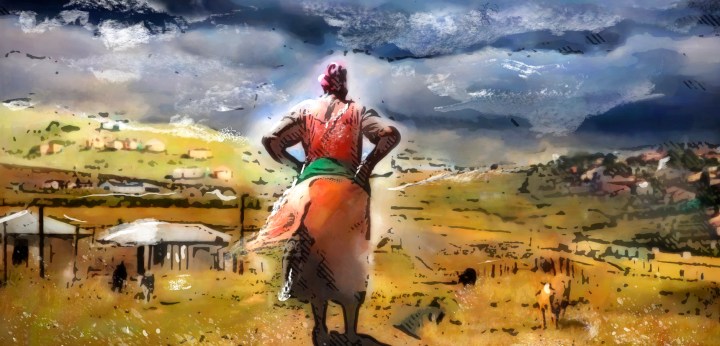Maverick Citizen Op-Ed
Justice Department insists on ‘unconstitutional’ Traditional Courts Bill

At the centre of the contention over this bill is why the clause allowing people to voluntarily submit to traditional courts has been taken out when voluntary cultural association is a right guaranteed in the Constitution.
Last week, Maverick Citizen hosted a webinar on whether the current Traditional Courts Bill being considered by Parliament is constitutional.
The bill was tabled for discussion by the justice portfolio committee on 10 February 2021, where MPs felt it needed to be submitted for legal opinion on whether the exclusion of the “op-out” clause – which allows people in rural areas to voluntarily associate with traditional leadership or not – was constitutional. This is in light of Section 31 of the Constitution which says everyone is guaranteed the right to voluntary cultural, linguistic and religious community.
MPs also expressed concern about legal representation being restricted by the bill, and the constitutionality of this. According to Section 35 of the Constitution: “Every accused person has a right to a fair trial, which includes the right to choose, and be represented by, a legal practitioner, and to be informed of this right promptly.”
The legal opinion, presented by parliamentary legal adviser Phumelele Ngema, said the bill was not unconstitutional because it did not expressly prohibit people living under traditional authority from opting out of the traditional courts. It also held that not having legal representation is not unconstitutional because customary law inherently prohibits legal representation because traditional courts work mainly through mediation and arbitration.
However, MPs still had questions about what the impact of not having an opt-out clause would be, as well as who would sit on the mediation committee in these courts, given that legal representation would not be allowed.
DA MP Glynnis Breytenbach was particularly stinging: “I differ sharply with the conclusion. The bill is unconstitutional. If this committee approves it and the [National Assembly] passes it, this committee will be humiliated. It will be the justice committee that approved an unconstitutional bill that fundamentally affects [the] rights of a vast number of South Africans.”
In a memo to the committee, the Land and Accountability Research Centre disagreed with the Department of Justice’s argument that it is not necessary to include the opt-out clause on the grounds that customary law is by nature consensual, as guaranteed in sections 30 and 31 of the Constitution.
The centre said the truth is very different on the ground, in that there have been attempts by people to opt out that have met resistance from traditional leaders and officials. “The Cala Reserve community sought to assert their customary right to elect their own headman. The Amahlathi community asserted their right to choose their own customary governance structure. In both instances the communities were forced to go to court to defend their section 30 and 31 rights. Instead of recognising these rights, [the Department of Cooperative Governance and Traditional Affairs) vigorously supported traditional leaders in opposing these applications at every turn.”
It went on to critique the role of the justice of the peace in the bill: “The intercession of the justice of the peace may provide a veneer of fairness and oversight, but s/he has no power to transfer a matter from the traditional court to the magistrates’ court, whatever circumstances s/he finds. Their power is to summon the person back to the traditional court, which is the only body with the power to decide the fate of the person who refused to appear before it.”
In addition, the centre has pointed out a key factual flaw in the legal opinion, on which it says the Justice Department’s argument hinges – that the bill is a forum for dispute resolution according to the principle of voluntary participation by all parties, but this does not appear in the current (D version) of the bill because it was deleted by then parliamentary chairperson Mathole Motshekga in 2018.
It is important to note that this is not the first time the bill has been referred for legal opinion over its constitutionality. In fact it was the Department of Justice’s position in 2018 that removing the opt-out clause would be unconstitutional. However, in 2021 it is arguing the opposite and has explicitly excluded the clause.
The discussion on the bill’s legal opinion is still before the justice portfolio committee. DM/MC


















 Become an Insider
Become an Insider
Being of Scots descent I appreciate culture but the Scots are no longer ruled by clan chiefs and lairds. Do South Africans want to live in the modern world or stay in the kraal?
this is 2021. What if a traditional court decides A outcome that flies in face of The Law?
Does Japie Platteland have the option to subject himself to his Voorvaders Komitee rather than the local Magistrate?
Let’s get rid of this colonial concept of people in leopard skins ruling people.